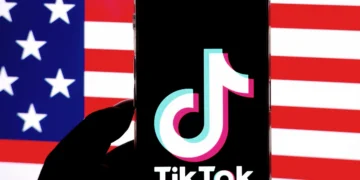TikTok sued US on a law that could force a nationwide ban of the popular app, following through on legal threats the company issued after President Joe Biden signed the legislation last month.
The court challenge sets up a historic legal battle, one that will determine whether US security concerns about TikTok’s links to China on TikTok’s 170 million US users data.
The stakes of the case are existential for TikTok. If it loses, TikTok could be banned from US app stores unless its Chinese parent company, ByteDance, sells the app to a non-Chinese entity by mid-January 2025.
In its petition filed Tuesday at the US Court of Appeals for the District of Columbia Circuit, TikTok and Bytedance allege the law is unconstitutional because it stifles Americans’ speech and prevents them from accessing lawful information.
The petition claims the US government “has taken the unprecedented step of expressly singling out and banning” the short-form video app in an unconstitutional exercise of congressional power.
“For the first time in history,” the petition said, “Congress has enacted a law that subjects a single, named speech platform to a permanent, nationwide ban, and bars every American from participating in a unique online community with more than 1 billion people worldwide.”
The lawsuit follows years of US allegations that TikTok’s ties to China could potentially expose Americans’ personal information to the Chinese government.
Data sharing Debate.
TikTok has strongly denied that it has never given Chinese government officials access to US user data and says it has taken steps to protect that information by hosting the data on servers owned by US tech giant Oracle
Those moves are part of a 90-page draft agreement before a government panel known as the Committee on Foreign Investment in the United States, a multiagency body that has been reviewing TikTok’s US operations since 2019, the petition said. That same draft deal also includes the ability for the US government to shut down TikTok if it or ByteDance “violate certain obligations under the agreement,” the petition said.
But those assurances have not eased US officials’ concerns, which include fears that China could use TikTok’s data to identify intelligence targets, spread propaganda or engage in other forms of covert influence.
The US government has not publicly presented any concrete evidence showing Chinese government access of TikTok data to date; US lawmakers have received classified briefings by national security officials behind closed doors, but they have not declassified any materials from those meetings.
Reactions to the briefings have been mixed, with one House Republican saying there was “no specific information … that was well-founded evidence” and one House Democrat saying the issue comes down to a judgment call about curbing “malign influence” from China.














